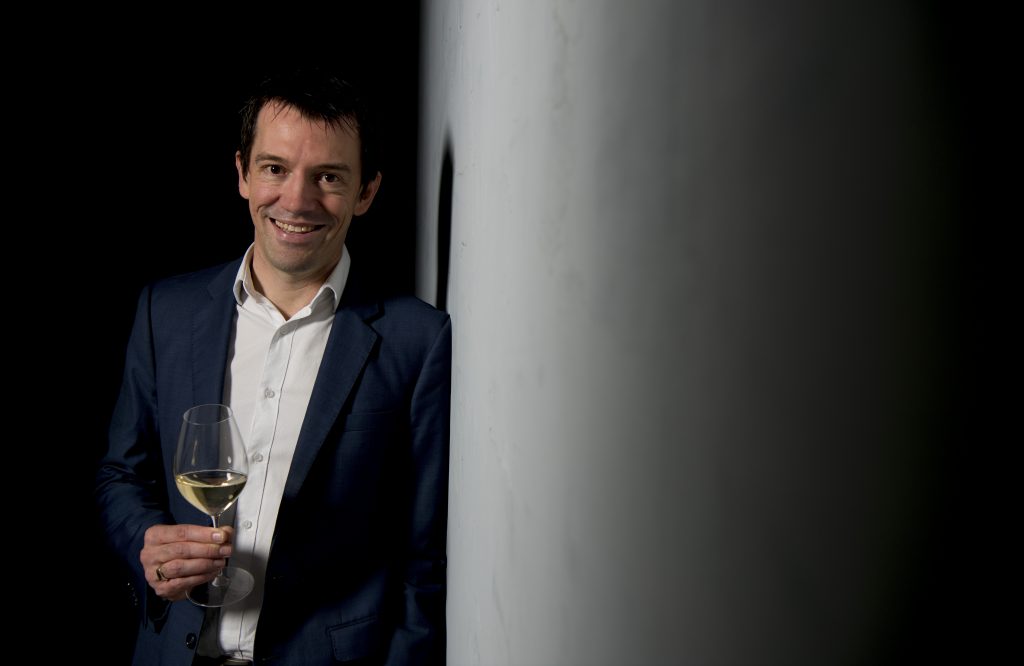The march to sustainable vineyards in Champagne has intensified like never before over the past two years, and a fundamental shift has seen the initiative move from the growers to the houses.
‘The large houses are taking better care of the vines than the small growers,’ reveals Pascal Doquet, president of Champagne’s organic body, Association des Champagnes Biologiques.
‘In recent decades, it has been a small band of growers who have famously and radically pioneered responsible viticulture in Champagne, inspiring a generation to follow,’ points out Tyson Stelzer, author of six editions of The Champagne Guide and host of Taste Champagne London. ‘But a new chapter is unfolding, with an unexpected and dramatic twist. The romanticised aura of growers as the heroes who are saving Champagne from the industrialised menace of the houses is not only a simplistic misconception, the truth today is in fact precisely the opposite.’
Pascal Doquet explains: ‘The big houses are in contact with the customers and have to show a better and greener technique in response to public expectation. Growers who are selling their grapes don’t have to show customers what they are doing in the vineyards.’
The leaders in sustainability in the vines and the wines of Champagne today, those whose vineyards set the pace in thwarting chemical intervention and who inspire, encourage, cajole and incentivise their grower partners to take up the challenge and step into a new millennium of responsibility are, with a small number of notably famous exceptions, not by and large the growers themselves, but the houses and cooperatives, even and most notably some of the biggest players of all.
Louis Roederer and Veuve Clicquot have forged forward as the new leaders of Champagne’s eco-revolution. ‘The change in the vineyards in the last decade has been unbelievable!’ enthuses Dominique Demarville, chef de cave of Veuve Clicquot. ‘The growers were the pioneers, and now the big houses have done great things in our own vineyards.’
In a region in which yields have spiralled in recent decades, the dilemma in Champagne today is that sustainability diminishes productivity. ‘You lose in quantity but you win in quality,’ explains Jean-Baptiste Lécaillon, who manages Champagne’s biggest biodynamic vineyard at Louis Roederer. ‘It’s all about the discussion between quality and quantity. This has been the debate for 300 years.’
Just over two percent of Champagne’s 33,868 hectares are now certified organic, of which Louis Roederer owns one-fifth. Twenty percent of Champagne vineyards are certified sustainable, with a goal of 100% by 2030.
Taste Champagne returns to London in 2020
Following the resounding success of the inaugural Taste Champagne London 2019, the biggest champagne event series in the new world is returning to London in 2020.
Hosted by Australian champagne expert and International Wine & Spirit Communicator of the Year Tyson Stelzer, Taste Champagne 2020 will step up to a larger venue in The Lindley Hall at The Royal Horticultural Halls.
Taste Champagne 2020 will introduce specially focused masterclass sessions for the first time, hosted by Champagne’s top chef de caves including Louis Roederer’s Jean-Baptiste Lécaillon and Charles Heidsieck’s Cyril Brun.
Taste Champagne London 2020 will be held on Wednesday 25 March 2020 and welcomes wine professionals and media between 11am and 5pm and public between 6pm and 9pm.
The Champagne Guide 2020-2021 to be released in January 2020
Tyson Stelzer’s sixth edition of The Champagne Guide will be launched in London in January 2020.
Double the size of past editions, the fully updated hardback and ebook of 584 pages feature up-to-the-minute overviews of 139 houses and reviews of more than 800 cuvées.
The Champagne Guide 2020-2021 features all-new chapters on how to crack bottle codes to decipher disgorgement dates, Champagne’s response to climate change, the move to sustainability, the threats to the existence of grower producers, the future of champagne prices and champagne faults.
The Champagne Guide 2020-2021 will be available as an ebook from www.TysonStelzer.com and as a hardback in all good bookstores at a retail price of £30 from January 2020.



